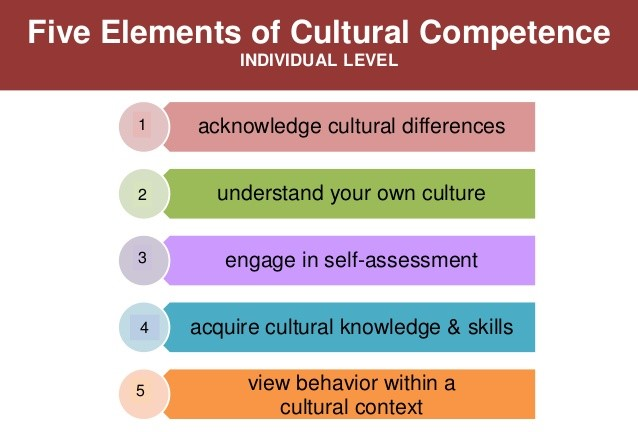The National Institutes of Health states that the healthcare system must take measures to address cultural competence to serve the needs of a diverse population. It explains that this can “alleviate healthcare disparities and improve healthcare outcomes in these patient populations.”
As the world becomes more globalized, cultural competency becomes a fundamental necessity. Therapists need knowledge, skills, and sensitivity to effectively deal with diverse clients.
In this post, we shall explore how developing cultural competence in therapy practices can improve therapeutic relationships and treatment outcomes.
What Is the Meaning of Cultural Competence?
Cultural competency refers to the ability of therapists to understand, communicate with, and effectively interact with clients across diverse cultures and backgrounds.
Several definitions from different health organizations shed more light on the essence of cultural competence. One example from the American Association for Health Education says:
“Cultural competence is the ability of an individual to understand and respect values, attitudes, beliefs, and morals that differ across cultures and to consider and respond appropriately to these differences in planning, implementing, and evaluating health education and promotion programs and interventions.”
In summary, if you’re culturally competent, it means you:
- recognize and respect the cultural influences that shape a client’s worldview, behaviors, and experiences.
- engage in an ongoing commitment to self-awareness, education, and adapting therapeutic approaches to meet the client’s uniqueness.
- understand how cultural identities impact a person’s mental health and coping mechanisms, and seek and deliver appropriate therapy.
Ultimately, it enables you to provide more tailored and effective treatment.

Why Is Cultural Competence Important?
Cultural competence in healthcare has several benefits for practitioners. Let’s explore some below:
Enhancing the Therapeutic Relationship
The therapeutic relationship is the cornerstone of effective therapy. Trust, rapport, and mutual respect between therapist and client are essential for successful treatment. Cultural competency plays a vital role in building and maintaining this relationship.
When you demonstrate cultural sensitivity and understanding, clients are more likely to feel respected, valued, and understood. This fosters a safe and supportive environment where clients can openly share their thoughts and feelings without fear of judgment or misunderstanding.
For instance, consider a therapist working with a client in a collectivist culture where family and community ties are highly valued. You can help a client feel more understood and supported if you recognize these connections and integrate them into your therapeutic process.
Conversely, a lack of cultural awareness can lead to misunderstandings, miscommunication, and a breakdown in the therapeutic relationship. This hinders the client’s progress.
Improving Treatment Outcomes
Cultural competency is directly linked to improved treatment outcomes. Practitioners with culturally competent skills can more accurately assess, diagnose, and treat mental health issues within the context of the client’s cultural background. This leads to more personalized and effective treatment plans that consider cultural influences on mental health.
For example, certain cultural groups may have specific beliefs about mental health and illness, which can influence how they perceive and respond to treatment. Psychotherapists can develop strategies that resonate with the values and practices of their clients by understanding their beliefs. This removes potential barriers to treatment, such as stigma or mistrust of mental health services.
In addition, you’re better equipped to recognize and address culturally specific manifestations of mental health issues. Symptoms of depression, anxiety, or trauma can vary significantly across cultures. You can avoid misdiagnosis and provide more accurate and effective interventions by being attuned to these differences.
Fostering Inclusivity and Respect
Cultural competency also promotes inclusivity and respect within therapy practices. An inclusive approach ensures all clients, regardless of their cultural background, feel welcome and valued. This is particularly important in mental health care, where clients are vulnerable and seeking support during challenging times.
It’s also possible to create an environment that respects and honors diversity if you prioritize cultural competency. This involves using inclusive language, being aware of cultural customs and practices, and continuously educating yourself about different cultural perspectives. As a result, you can create a more equitable and supportive therapeutic space for all clients.
Addressing Power Dynamics and Bias

Cultural competency requires therapists to acknowledge and address power dynamics and biases that may impact the therapeutic process. Therapists hold a position of power and influence, so you should be mindful of how this dynamic can affect clients from marginalized or minority backgrounds.
Therapists must engage in ongoing self-reflection to recognize their own biases and how these may impact their interactions with clients. This includes examining how personal beliefs, values, and assumptions about different cultures can influence the therapeutic process. By actively working to mitigate these biases, health professionals can provide more objective and equitable care.
For example, if you hold unconscious biases about a particular cultural group, you may inadvertently impose these biases on your client. This leads to a skewed understanding of the client’s experiences and needs. You can work to challenge and overcome these biases to provide patients with unbiased and respectful care through self-awareness and cultural education.
Widen Your Knowledge in Cultural Competence Online
You might think continuing education is time-consuming. Here’s the solution. Online CE Credits dishes out therapist-managed courses online without due dates and deadlines. So you can master your skills and outshine your peers in cultural competence anytime, anywhere. And you can complete the programs easier than you think without sacrificing your job or family time.
Dip your toes into the courses below:
- Treating Grief-Stricken Clients: Culturally Sensitive Interventions
- Improving Cultural Competence
- Couples Therapy: Effective Clinical Techniques for Culturally Diverse Clients
The Role of Education and Training
Education and training enable you to develop and maintain cultural competency in therapy. Therapists must commit to lifelong learning and professional development to stay informed about cultural issues and best practices. This can involve participating in cultural competency training programs, attending workshops and seminars, and engaging with cultural literature and research.
Also, you can benefit from seeking supervision or consultation with experienced colleagues in cultural competency. This collaborative approach allows you to gain insights, receive feedback, and refine your skills in working with diverse clients.

Client-Centered Care and Empowerment
Cultural competency aligns with the principles of client-centered care and empowerment. You can empower clients to take an active role in their treatment by recognizing and valuing their cultural identities. This collaborative approach encourages them to share their cultural perspectives, preferences, and values, which can inform and fine-tune the therapeutic process.
Empowering clients fosters a sense of agency and autonomy, which is crucial for their overall well-being and recovery. Clients who feel heard and respected are more likely to engage in therapy, adhere to treatment plans, and experience positive outcomes.
Aim for Cultural Competence
Cultural competency is crucial for modern therapy practices. It enhances the therapeutic relationship, and treatment outcomes, fosters inclusivity and respect, and addresses power dynamics and bias. As the world becomes increasingly diverse, the need for culturally competent therapists will continue to grow.
You can offer more effective, respectful, and inclusive care to clients if you commit to cultural competency. Build a strong foundation for professional growth with our comprehensive programs. Create an account to get started!